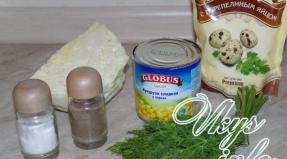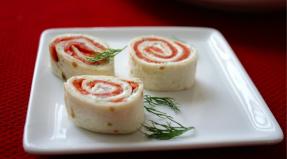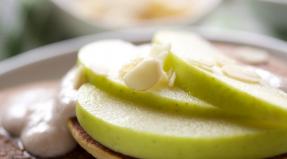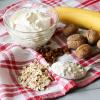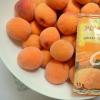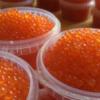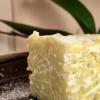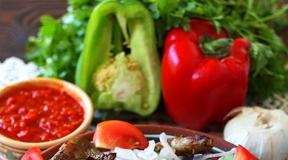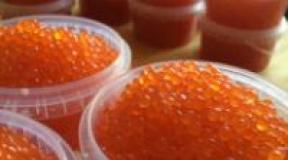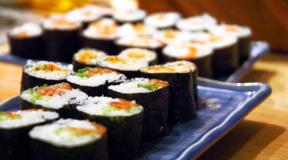Benefit or Harm: Frozen VS Fresh. Debriefing: is it good to eat frozen food
Today it seems to us that frozen food has always been in stores. But this is a delusion. The first assortment of frozen vegetables arrived in Russia around the time of the collapse of the USSR and it was unpretentious - frozen peppers, tomatoes, onions. Now we can easily find popular Hawaiian mix, Chinese rice with shrimp and vegetables mix, and even Spanish paella in supermarkets! But the question arises - are frozen vegetables more useful in winter than fresh ones?
Mixed vegetables - and it's in the bag!
Why are vegetable mixes so popular among Russians? The point is that our women love fast food. Why spend hours preparing a dish when you can quickly mix everything that is at hand. This is how pizza, vinaigrette, hodgepodge, okroshka, pilaf once appeared. And in these dishes, you can easily use frozen vegetable mixes.
 Subsequently, it was these products that won recognition and popular love. They were easy to prepare, inexpensive, and delicious. And in the absence of the necessary ingredient, it could easily be replaced with the one that was at hand. This made the food varied and helped to find the most delicious food combinations.
Subsequently, it was these products that won recognition and popular love. They were easy to prepare, inexpensive, and delicious. And in the absence of the necessary ingredient, it could easily be replaced with the one that was at hand. This made the food varied and helped to find the most delicious food combinations.
Vegetable mixes are delicious, healthy, and allow for experimentation. For lovers of a hearty lunch, vegetable mixes are an excellent side dish for the main course. For vegetarians and adherents of a healthy diet, this is a tasty and healthy dish. Experimenters not only fry or boil them, but also make original hot dishes or cold salads on their basis. Even capricious children liked the vegetable mixes. Multi-colored side dishes are tastier than ordinary buckwheat or potatoes and are more interesting to eat.
However, can we be calm about the health of our loved ones. Are vegetable mixtures actually extremely healthy, rich in vitamins and minerals?
Which is better - fresh or frozen?
Researchers from the Austrian Consumer Society compared the nutritional value of frozen and fresh vegetables imported in winter from Italy, Turkey, Spain and Israel. Vitamin content in  frozen peas, cauliflower, beans, corn and carrots were higher than imported fresh vegetables. It should be remembered that the fresh vegetables available in stores in winter are most often imported from southern Europe or northern Africa and contain much lower amounts of vitamins and minerals than local vegetables in season.
frozen peas, cauliflower, beans, corn and carrots were higher than imported fresh vegetables. It should be remembered that the fresh vegetables available in stores in winter are most often imported from southern Europe or northern Africa and contain much lower amounts of vitamins and minerals than local vegetables in season.
The results of such studies serve as the basis for the development of dietary recommendations. For example, in the UK, frozen and canned vegetables and fruits are included in the set of foods that are recommended to be consumed daily in winter.
Quick-frozen vegetables are practically not inferior to fresh ones in their nutritional value and in the content of water-soluble vitamins. Freezing leads to a slight decrease in the initial level of only vitamin C - ascorbic acid. The content of vitamins B1 and B2 in frozen foods does not change.
How to defrost vegetables and berries correctly?
 Defrost vegetables and fruits as quickly as possible. You can use the microwave to do this. If you are going to use berries and fruits as a filling, you do not need to defrost them at all. The same advice can be given if you intend to boil or fry frozen foods. In addition, remember the following rule: the less water vegetables are boiled, the more vitamins and minerals are stored in them.
Defrost vegetables and fruits as quickly as possible. You can use the microwave to do this. If you are going to use berries and fruits as a filling, you do not need to defrost them at all. The same advice can be given if you intend to boil or fry frozen foods. In addition, remember the following rule: the less water vegetables are boiled, the more vitamins and minerals are stored in them.
Fry or steam?
Remember that the nutritional value and quality of ready-made vegetable dishes are significantly reduced during storage and especially when reheated. During storage, the content of vitamin C decreases, and when food is heated, it is completely destroyed. Therefore, the shelf life of ready-made vegetable dishes should be no more than 3 hours, and potato dishes - no more than an hour. Cook vegetables for one-time use only.
There is one more remarkable subtlety in this business - the finer the vegetables are cut, the more vitamins they lose. Salt the vegetables 5-10 minutes before the end of cooking: this way more minerals are retained.
And one more thing: boiled vegetables contain more vitamins than fried ones.
So get steamers who have not yet had time to acquire and absorb vitamins and minerals!
Comments (1)
|
|||||||
|
|
In the modern world, women have very little time for housekeeping. But you can't leave your family hungry. That is why frozen food in colorful packaging is becoming more and more popular. However, not everyone knows about the dangers or benefits of such products.
Experts say that many vitamins are stored in frozen foods. After all, the time from the moment of harvesting vegetables to their freezing is reduced as much as possible. This allows most of the vitamins to remain in the vegetables. However, some types of nutrients still die.
At very low temperatures, vitamins are oxidized. And so the frozen food becomes less useful. However, this can be fixed. To do this, you need to add fresh food to the frozen vegetables. For example, onions, carrots, and so on. Then the dish will turn out to be tasty and healthy.
When food is frozen, vitamin C is reduced the most. This applies to cabbage, broccoli, peppers, green peas, and so on. Other vitamins are also reduced in frozen vegetables, but in smaller amounts. That is why it is not recommended to exchange fresh vegetables for frozen foods. Everyone understands that dumplings cannot be made only from pure meat. After all, the price of frozen dumplings does not match their filling. However, many people are tormented by the question of whether frozen foods with other fillings are healthy. Experts say that there is nothing in products such as dumplings except dough in water and ordinary potatoes.

As for frozen pancakes, there are practically no harmful substances in them. However, such a dough should not be consumed daily. The dough from which the pancakes are made contains a lot of dyes, emulsifiers and stabilizers. These approved food additives are required to mix several dry portions. However, this leads to the fact that a person does not receive the required amount of vitamins.
Many people ask the question of how long frozen food can be stored. The shelf life of frozen products is no more than six months. However, it must be remembered that the less the product is stored frozen, the better. After all, ice crystals destroy the structure of the product. For this reason, frozen foods that are stored for a long time lose vitamins and become useless for humans. Such foods can only satisfy the feeling of hunger. But after eating frozen foods that have been stored for a long time, a person will not receive vitamins.

Carefully check the packaging and condition of the product before purchasing. If the food is sticky, it may mean that it has already been defrosted and re-frozen. It is better to refuse such products. Also look at the quality of the packaging. Read the label on the frozen food package carefully. It should contain the manufacturer's address, product name, expiration date, date of manufacture, and so on. If the inscription on the product label is unclear or blurred, then it is better to refuse to purchase this product. Deep-frozen vegetables contain more vitamins than other frozen foods. Deep freezing occurs at a temperature of minus thirty-five degrees Celsius. This should be indicated on the packaging.

People who suffer from gastritis, stomach ulcers and other diseases associated with the gastrointestinal tract are advised to refuse frozen food. As a last resort, you can use frozen vegetables. However, they need to be boiled, not fried. Never defrost food under the hot tap. This contributes to the reduction of vitamins in foods.
Therefore, they are replaced by frozen foods. But the attitude towards them is ambiguous. Many consider them empty: supposedly there are no vitamins and other useful substances in them.
Is this so and what are frozen vegetables and fruits, says doctor, candidate of medical sciences, specialist in healthy lifestyles Andrey Beloveshkin.
Unfortunately, the prejudice towards frozen food still persists for many. Although frozen fruits and vegetables are now healthier than fresh ones. This became possible after the shock freezing technology was invented at the beginning of the last century. The rapid impact of low temperatures made it possible to make frozen products of a fundamentally different quality. First, it retains its taste. Secondly, nutrients are practically not lost.
Frozen ripeness
The most ripe vegetables, fruits and berries are used for freezing. This means that they have more nutrients, the amount of which reaches a maximum during the period of 100% ripening.
Since fresh vegetables and fruits have to be transported from several days to several weeks, they are harvested long before ripening, and they ripen on the road or during storage. With such an unnatural ripening of nutrients, the fruits accumulate less than if this process took place on a branch or in a garden bed. In unripe fruits, the amount of vitamins and minerals is sometimes up to 75% lower than in ripe ones.
Scientists have repeatedly conducted studies of fresh and frozen vegetables, which showed that the latter contains more vitamins. For example, Austrian society compared the nutritional value of local frozen vegetables with fresh ones brought from Spain, Italy, Turkey and Israel. There were much more vitamins in local products than in imported ones.
"Conservative" question
Since the production of frozen vegetables and fruits is usually close to the place of their cultivation, there are no preservatives in them. After all, they are frozen immediately after collection. But fresh fruits and vegetables are often treated with various preparations for the development of mold, so that they can travel across countries and even continents and are better stored.
Lossless storage
While fresh vegetables are being transported and stored, they can lose more than half of their beneficial properties. For example, studies have shown that green peas, when stored on store shelves for a long time, lose 77% of their vitamins, and 94% are retained when frozen.
In general, freshness is usually determined by the amount of vitamin C and how much of it has been lost. The fact is that this vitamin is especially easily destroyed, and in a couple of days its content can become insignificant. For some fruits, this is especially significant.
On average, picking and transporting vegetables takes 7-9 days, plus they spend 4-5 days on store shelves. Studies have shown that during this time, green beans lose 45% of nutrients, broccoli and cauliflower - 25%, peas - 15%, carrots - 10%. In addition to vitamins, other useful substances are destroyed. For example, in cabbage, these are the most valuable glucosylates that have an antitumor effect.
But with frozen products, this is impossible. True, in the event that they are properly stored in refrigerators and are not defrosted or partially thawed. If you store them properly, you can save a lot of money on spoiled fresh vegetables and fruits.
Paradox Berries
Of course, the amount of vitamins decreases even in frozen food. But it is small and uncritical. Ascorbic acid is destroyed more than others - up to 15-20% during shock freezing with a temperature of minus 30 ° C. For comparison: when vegetables and fruits are rolled up in a jar, up to 50% of this vitamin is lost, while drying - up to 70%. Vitamin C is the most sensitive to temperature changes, and therefore the loss of other vitamins is even less. Thus, the level of carotene and vitamin B₂ is practically not affected by freezing (its loss is only 4%), vitamin B₁ - 25%. And the amount of folic acid in frozen gifts of nature remains unchanged for a whole year of storage.
There are simply paradoxical effects. Freezing makes blueberries and blueberries even healthier than fresh berries. They are rich in anthocyanins, the strongest antioxidants. So, when frozen, ice crystals are formed in the cells of berries, which destroy tissues and make anthocyanins more accessible - they are better absorbed than from fresh berries.
Text: Irina Sergeeva
Frozen vegetables and fruits ... we love them, to be honest. It's convenient, it's nutritious ... or not? Let's see how frozen fruits-vegetables-berries are useful or, conversely, harmful ...
Frozen vegetables and fruits - definitely "yes!"
Russian people are sometimes suspicious. So it is with frozen vegetables and fruits- Is it true that it was not spoiled vegetables that were frozen? Is it true that they are not harmful? Is it true that at least some vitamins have been preserved in them?
There is a long-standing debate about whether frozen fruits and berries are harmful or healthy. There are studies showing that frozen foods not only keep up with fresh ones in nutritional value, but in some cases surpass them. Product critics argue that frozen or packaged food does not inspire confidence. Everyone decides for himself, but we will give a few facts.
It's summer now, and when we are able to buy a really fresh product, it is worth taking advantage of this opportunity. There can be no talk of any frozen food as long as there are “live” apples, cherries, cucumbers at hand. But winter is coming. You can buy berries grown in greenhouses, but you can also buy frozen berries. Which ones to choose in winter? Critics and advocates of frozen food agree that summer-produced and frozen foods are healthier than "artificial" winter fruits and vegetables.
Judge for yourself - only the highest quality fruits are selected for freezing. Yes, then they are thoroughly washed, cleaned and pretreated (crushed), packed and frozen. But these are top quality products. In winter they are better than other "freshly imported from Australia".
Frozen vegetables and fruits - the head is cold
It has long been known that there is no better preservative than cold father. It is able to maintain the best qualities of the product. But you can freeze in different ways. What methods of freezing are there and which method is best for the consumer?
The classic way of freezing is at a temperature of minus 30-40 ° C using a low-temperature liquid or cold air. At the same time, the water contained in the cells does not have time to organize itself into large ice crystals that destroy the cell membranes. As a result, the food remains intact.
There is also a more modern method - cryogenic or shock freezing at temperatures below -60 ° C. In terms of its nutritional value, such a product is practically not inferior to fresh one.
But even a simple consumer knows that it is not as important as it was frozen, it is important that during transportation it does not defrost, so that the product does not get into the heat. The re-frozen product does not look different from the original one, however, its vitamin value and usefulness are not at all the same. How to be? Fortunately for us, some manufacturers put special paper indicators in the fruit packaging. From the juice of the products, they change color and thus warn of the occurrence of defrosting.
Frozen vegetables and fruits - which ones to take?
Some berries, vegetables and fruits lend themselves better to freezing and tolerate it better than gathering them in branches and beds. So, from berries - these are strawberries, wild strawberries, cherries, raspberries, currants, cherries, gooseberries, wig. The best vegetables for freezing are asparagus beans, sorrel, bell peppers, eggplants, tomatoes, cauliflower, carrots. Fruits: apricots, plums, pears, peaches, grapes.
If you are going to use berries and fruits for baking or compotes, then defrosting them is not necessary, especially since they will cook faster when frozen. For cooking vegetables, it is advisable to use a minimum amount of water or steam them, then they will preserve vitamins as much as possible.
Today, there are many frozen vegetables in stores. But is it worth buying them? What do frozen vegetables bring to the body, benefit or harm, this article will tell.
Frozen vegetables, or imported fresh ones?
Austrian scientists have shown that frozen vegetables such as peas, beans, cauliflower, carrots and corn contain more vitamins than fresh vegetables imported from warm countries.
Frozen vegetables for weight loss
Some research has led to the development of frozen vegetables-based diets. Such diets are especially relevant in winter, when there is no access to fresh natural vegetables. While observing such a food system, it is enough to eat 2 servings of stewed vegetables, one of which replaces dinner. Such a diet is effective only if high-calorie foods, sweet and starchy foods are excluded.
When vegetables are quickly frozen, the vitamin composition remains practically unchanged. The only decrease is the level of ascorbic acid - vitamin C. And vitamins B1 and B2 completely remain in frozen foods. How many calories are in frozen vegetables depends on the calorie content of the fresh product. Most vegetables contain relatively few calories. The freezing process practically does not change the calorie content of vegetable products, and on average it is 50 kcal.
Benefits of quality frozen vegetables
These vegetables do not need to be washed and can be used to quickly prepare a variety of dishes. These vegetables are low in calories, so they can be used in dietary meals. If you buy vegetables not in packages, but by weight, you can combine them with fresh vegetables and herbs such as onions, carrots, dill and parsley.
How to cook vegetables properly?
The benefits of frozen vegetables will be less if they are reheated or stored for a long time. Ready-made vegetable dishes should be stored for no more than three hours. Therefore, it is better to cook from frozen vegetables for a single use. Boiled vegetables retain more vitamins than fried vegetables. It is better to salt a vegetable dish not immediately, but 10 minutes before cooking. This will keep more minerals in the food.
Contraindications for frozen vegetables
The main harm that frozen vegetables can cause is not the frozen food itself, but the food additives that some manufacturers use to prepare them. Undergoing industrial freezing, vegetables lend themselves to temperature processing. As a result, they lose their attractive bright color. In order to bring back the color and brighten the taste, manufacturers use food additives.
Frozen Vegetable Mix is a set of peeled and processed vegetables that have been shock-frozen or frozen. The workpieces have a long shelf life - from 6 months to one and a half years. During the freezing process, vegetables retain vitamins and nutrients without losing their taste.
Types of frozen vegetable mixes
Depending on the composition of the vegetable set, the mixtures are divided into several types:
- Homogeneous... There is only one ingredient in the frozen mixture.
- Assorted... The mixture consists of several types of vegetables.
- Ready meals... Another name for such mixtures is semi-finished products. The composition contains the necessary set of products for the preparation of a certain dish.
Frozen Vegetable Mix Composition
Lecho:
- a tomato;
- zucchini;
- carrot;
- paprika or any sweet pepper.
Mexican:
- carrot;
- green beans;
- peas,
- corn;
- celery;
- red beans;
- pepper.
Hawaiian:
- corn;
- green pea;
- pepper.
Gyuvech:
- okra;
- eggplant;
- Bell pepper;
- a tomato;
Ratatouille:
- a tomato;
- zucchini;
- Bell pepper;
- zucchini;
Paprikash:
- pepper;
- zucchini;
- green bean;
- a tomato;
Frozen vegetable mixes benefits and harms
During freezing, all the nutrients found in vegetables and herbs are preserved. All mixtures contain all vitamins and minerals necessary for a person. Both fresh and frozen vegetables contain vitamins B and C, potassium, calcium, and other useful substances.
All frozen vegetable mixtures help to improve appetite, improve the functioning of the digestive system and normalize metabolism.
Frozen vegetable mixes are not harmful. They save from vitamin deficiency and increase immunity. In case of individual intolerance to one of the products, you should carefully study the composition of the mixture or compose it yourself.
All mixtures are low in calories. They are suitable for dietary and baby food.
How to prepare frozen vegetable mixture
At home, you can independently invent and compose various combinations of vegetables. You can put cabbage, carrots, beets, herbs and onions in the preparation for borscht. You can make a simpler mixture of beets, onions, and carrots. If you wish, you can freeze all vegetables individually and mix just before cooking.
Making a frozen vegetable mixture:
- All vegetables should be carefully sorted out, rotten and spoiled should be removed.
- Wash, peel, cut. Suitable for cutting vegetables: knife, grater, vegetable cutter.
- Blanching. Essential to preserve the color, flavor and texture of some vegetables.
- Dip vegetables in boiling water for a few seconds, put in a colander and dry.
- Transfer to storage container: plastic container, freezer bags.
- It is advisable to use vegetables within 1 year.
Advice! Place the date the mixture was prepared on the outside of the bag or container. This will keep the vegetables from storing for a long time.
Put the prepared mixtures of vegetables into the freezer.
Energy value of the product (Ratio of proteins, fats, carbohydrates):
Proteins: 1.1g. (4.4 kcal)
Fat: 0.2g. (1.8 kcal)
Carbohydrates: 2.7g. (10.8 kcal)
Energy ratio (b | f | y): 8% | 3% | 21%
Freezing is one of the many ways to store food. Firstly, this method is quite simple, and secondly, effective: if the food is frozen and stored at a low temperature,  vitamins in them will be preserved almost completely, and this is very important.
vitamins in them will be preserved almost completely, and this is very important.
Let's see how frozen vegetables are good for you
Thanks to freezing, you can eat vegetables all year round, besides, they taste no worse than fresh vegetables just picked from the garden. However, why, then, can one sometimes come across statements that such vegetables are unhealthy?
So, usually vegetables that are intended for freezing are not processed immediately, but a couple of hours after collection. Of course, in this case, the amount of vitamins in vegetables has time to go down. But compared to vegetables that have made their way from the collection point to the store, frozen vegetables lose much less vitamins. The fact that store vegetables contain much less vitamins than frozen ones is also confirmed by laboratory studies. Moreover, this difference is much greater in winter, since then most of the vegetables that are sold in the store are brought there from southern countries.
Frozen vegetables are not only an excellent source of vitamins, they also improve appetite and digestion. Frozen vegetables can be cooked and fried, or stewed - and they can be used not only as a side dish, but also as a separate dish. In Russia, the most popular frozen vegetables are beans, vegetable mixtures, and various types of cabbage.
In order to freeze vegetables yourself, you can use either a plastic bag or any container with a lid. However, bags are more suitable for storing vegetable cuts, but in a container, unlike it, there is a possibility of storing whole vegetables.
Potential harm from using frozen vegetables
So let's now find out if frozen vegetables can cause any harm to our health. In fact, this can happen, but only if you first took the frozen vegetables out of the freezer, they thawed, and you froze them again. The fact is that you cannot re-freeze vegetables - otherwise, vegetables may deteriorate and, if eaten, cause food poisoning. It is also important to remember that frozen vegetables must be stored at a low temperature. If you follow these two simple rules, then frozen vegetables will only benefit, and no harm. And we advise you to read our article on which sweets are useful.
Be healthy!
Here is the opinion Head of the Laboratory of Food Additives of the Institute of Nutrition of the Russian Academy of Medical Sciences A. N. Zaitseva:
- Experts consider freezing to be the best way to preserve. No wonder today it has become almost the most popular in the whole world. By the way, the secret of "berries with ice" is well known to the inhabitants of the North of Russia, who have kept cranberries and lingonberries frozen from time immemorial. Fast freezing technology allows you to almost completely preserve vitamins and minerals. The taste and nutritional value of frozen vegetables and fruits are not inferior to fresh ones. But under two conditions. First, you need to store them in the freezer. Secondly, you cannot thaw and then freeze again, otherwise the food may deteriorate and even cause poisoning.
Variegated soup
Vegetable soups from "frozen" improve digestion, appetite, increase the tone of the body. Chop and fry 1-2 onions in vegetable oil until golden brown. Place the green pea and carrot vegetable mixture in a weak stock. Bring to a boil. Add the onion a few minutes before cooking.
Magnificent quartet
Dip a mixture of broccoli, cauliflower, carrots in boiling water and boil until tender. Season with salt and spice to taste. Without defrosting the champignons, simmer with onions over low heat for 7-10 minutes. Mix mushrooms with vegetables and serve as a side dish (then the meat is better and faster absorbed) or as an independent dish. It contains a lot of fiber, which removes excess cholesterol, as well as a complex of minerals important for health.
Vegetable mosaic
Are you tired? Do you want to recuperate? Remove swelling, lose weight? Include vegetable stews in your diet.
Simmer frozen cauliflower, carrots, potatoes, green peas and fresh tomatoes (proportions to taste) in vegetable oil, stirring occasionally, over low heat for 7 minutes. Add cloves to taste. Garnish with finely chopped herbs before serving.
Desserts "Dreams of Summer"
Cherry jelly. Soak gelatin in water for 25-30 minutes. When it swells, wring it out. Dip the cherries in boiling water. Wait for the water to boil again, add sugar syrup, strain. Then add the gelatin and stir. Arrange the berries in tins, pour over the syrup and set in a cool place to freeze. Add some wine and lemon juice to the jelly for flavor.
For 0.5 kg of cherries - 0.5 l of water, 250 g of granulated sugar, 1/2 glass of dry white wine or liqueur, 1/2 tbsp. tablespoons of lemon juice, 1/2 tbsp. tablespoons of gelatin.
Berry mousse. Let the berries thaw slightly and make mashed potatoes from them: mash and rub through a sieve. Pour the pomace with hot water, boil for 5-7 minutes, strain. Put granulated sugar, pre-soaked gelatin into the berry broth and, stirring continuously, bring to a boil. Then cool, add the berry puree and beat until a homogeneous mass is formed (it should increase in volume by 2 times, for this it is better to beat in a cool place). Divide the finished mousse into the tins and refrigerate. Garnish with wedges of fresh or canned berries and fruits.
For 1 cup of berries - 2 cups of water, 3/4 cup of granulated sugar, 15 g of gelatin.
Where are vitamins stored
Homemade preparations may well replenish the supply of vitamins that was pretty much wasted during the winter. True, the preservation of nutrients is significantly influenced by the way vegetables and fruits are preserved.
Like a cucumber
Salting and pickling allows you to preserve almost all vitamins and minerals that are found in fresh vegetables. At the same time, some canned vegetables are even healthier than the "raw material". A classic example is sauerkraut. Lactic acid bacteria, which are released during fermentation, allow all vitamins to be fully preserved, while in fresh cabbage, some of the vitamins are destroyed during storage. And cabbage pickle is a wonderful prophylactic agent for gastritis with high acidity and a real helper for those who want to lose excess pounds. The fact is that cabbage brine contains substances that prevent the conversion of sugar and other carbohydrates into fat.
Pickled apples are also sometimes healthier than their fresh counterparts. If fresh apples lie for at least a couple of weeks, they lose about one third of their vitamin C, while in soaked apples, ascorbic acid is completely preserved.
However, it is better for heart patients and hypertensive patients not to abuse pickles and marinades. These canned foods contain too much salt, and this can lead to high blood pressure. Spicy snacks such as lecho, pickled tomatoes and peppers are contraindicated for people suffering from gastritis and peptic ulcer disease.
The fly sat on the jam
Unfortunately, during cooking, fruits and berries lose about 30% of their vitamins. But on the other hand, jams and compotes contain quite a lot of fiber and pectins. These substances lower the level of bad cholesterol in the blood and improve digestion. But for lovers of the so-called raw jam, for the preparation of which the berries are not boiled, but simply ground with sugar, the lack of vitamins is not threatened - this method of canning allows you to save most of the nutrients.
But if you are inclined to be overweight or suffer from diabetes, it is better to refuse sweet jams, preserves and compotes.
Shrinkage and shrinkage
But dried fruits and berries are far from the richest source of vitamins. However, there are also pleasant exceptions. Dried rose hips contain a large amount of ascorbic acid, and in prunes and dried apricots there is a lot of potassium useful for the heart and blood vessels. But if you want to lose weight, do not lean too much on dried fruits - dried fruits are very high in calories.
by the way
The freezer is better! Frozen vegetables are often healthier than imported "fresh" ones sold in supermarkets off-season, according to a new study by Austrian scientists.
Researchers claim that fresh-looking vegetables that travel a long way before they reach the counter lose many of their vitamins and minerals. Frozen vegetables, on the other hand, are often processed only a few hours after they have been harvested, and their nutritional value is preserved. Scientists compared the nutritional value of frozen foods and imported fresh vegetables sold in winter. The vitamin content of frozen peas, cauliflower, beans, corn and carrots was much higher than imported fresh vegetables from Italy, Spain, Turkey and Israel.
Personal opinion
Aziza, singer:
- I don't find frozen vegetables and fruits particularly healthy, but, of course, I use them sometimes. For example, my favorite cherry pie in winter can only be made with frozen berries, which I always keep in the refrigerator. But frozen corn, green peas, it seems to me, have previously undergone some kind of heat treatment. Therefore, it is better to still use vegetables that you harvest yourself. For example, my aunt and I freeze bell peppers for the winter, which we collect in large quantities in the country.
The most popular frozen foods among Russians
According to sociologists, among frozen foods, the most popular among Russians are:
Vegetables
1. Cabbage (cauliflower, Brussels sprouts, broccoli)
2. Green beans and vegetable mixes (Hawaiian, Mexican, Piquant, etc.)
Berries
Strawberry
2. Cranberry
3. Cherries, blueberries, lingonberries
Mushrooms
1. Champignon
2. White, boletus, boletus
The most unpopular frozen food is french fries.
Continuing: What to cook from frozen vegetables →
Read also ...
- Chicken liver pate
- Delicious zucchini with cheese in sour cream in the oven - a step by step recipe with video Zucchini recipes in the oven with sour cream
- Banana rice and corn flour pancakes (gluten free) with homemade banana sauce Banana pancakes with semolina
- Cabbage casserole with chicken Chicken fillet casserole with cabbage
